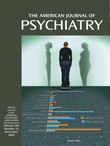Frontline Treatment of Combat Stress Reaction: A 20-Year Longitudinal Evaluation Study
Abstract
OBJECTIVE: The purpose of the study was to evaluate the long-term (20-year) effectiveness of frontline treatment provided to combat stress reaction casualties. METHOD: A longitudinal quasi-experimental design was employed. Participants were combat stress reaction casualties of the 1982 Lebanon War who received frontline treatment (N=79), comparable combat stress reaction casualties who did not receive frontline treatment (N=156), and matched soldiers who did not experience combat stress reaction (N=194). Subjects were asked which of the frontline treatment principles (proximity, immediacy, expectancy) were applied in their treatment, whether or not they returned to their unit after frontline treatment, and if so, whether they returned before or after they felt completely recovered. Outcome assessments included measures of posttraumatic and psychiatric symptoms and of social functioning. RESULTS: Twenty years after the war, traumatized soldiers who received frontline treatment had lower rates of posttraumatic and psychiatric symptoms, experienced less loneliness, and reported better social functioning than similarly traumatized soldiers who did not receive frontline treatment. In addition, a cumulative effect of application of frontline treatment principles was documented: the more principles applied, the stronger the effect on psychiatric outcomes. CONCLUSIONS: Frontline treatment is associated with improved outcomes even two decades after its application. This treatment may also be effective for nonmilitary precursors of posttraumatic stress disorder.



